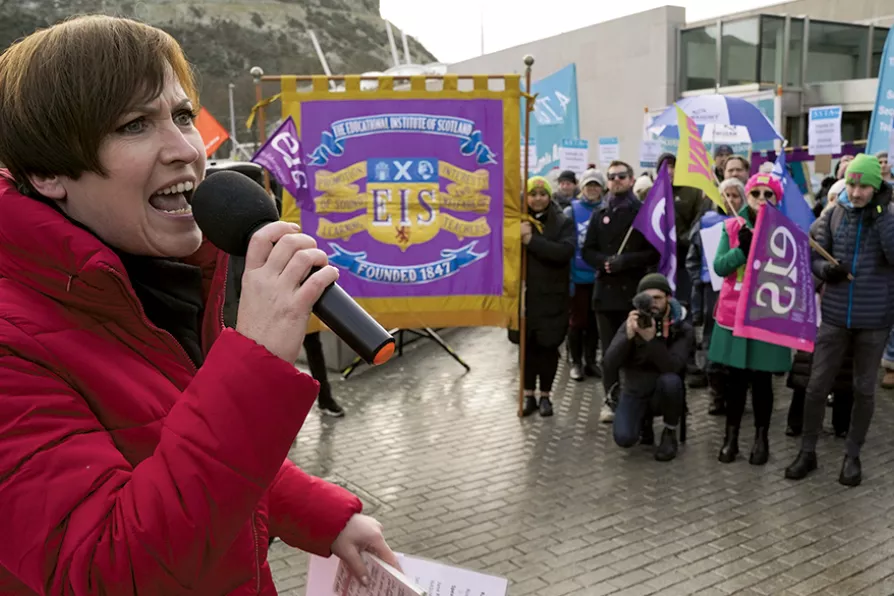Eighty-one years after the liberation of Auschwitz, the threat of far-right extremism is resurging – the lessons of history demand unity, organisation and resistance, argues SABBY DHALU

 BETTER VISION: Roz Foyer from the STUC joins union members outside the Scottish Parliament, Edinburgh at the Scotland Demands Better rally, organised by the STUC, outside the Scottish Parliament, Edinburgh on December 8 2022
BETTER VISION: Roz Foyer from the STUC joins union members outside the Scottish Parliament, Edinburgh at the Scotland Demands Better rally, organised by the STUC, outside the Scottish Parliament, Edinburgh on December 8 2022
NEXT year, 2024, will see the tenth anniversary of the referendum on independence for Scotland. Since that year, the SNP has consolidated its position as the dominant party in Scottish politics, but very much as a centrist party of neoliberalism.
And if, as Nicola Sturgeon claims, the Tories believe that creating a constitutional crisis on the back of the Gender Recognition Act (GRA), will undermine support for the SNP and independence, they are going to be disappointed.
Without for a moment reducing the importance of the GRA both for its supporters or its critics, it is not a burning issue either in the lives of most Scots or in shaping their political allegiances.

Ahead of next year’s parliamentary elections, ROZ FOYER warns that a bold tax policy is needed to rebuild devastated public services which can serve as the foundation of a strong, fair economy

VINCE MILLS gathers some sobering facts that would inevitably be major obstacles to any such initiative

That Scotland was an active participant and beneficiary of colonialism and slavery is not a question of blame games and guilt peddling, but a crucial fact assessing the class nature of the questions of devolution and independence, writes VINCE MILLS

COLL McCAIL rejects the Scottish Establishment’s attempt at an ‘elite lockout’ of Reform UK and says the unions should be wary of co-option by their class enemies in Holyrood just to keep one set of austerity-mongers in power instead of Reform UK










